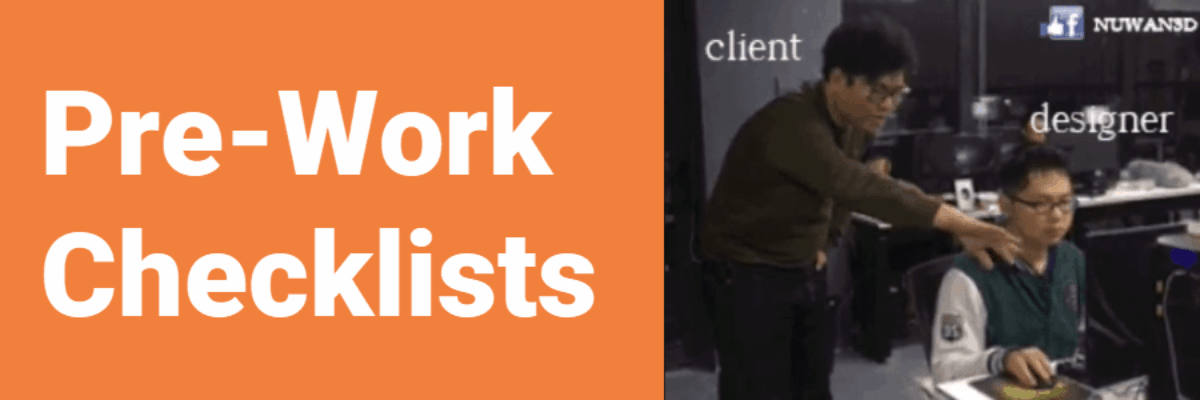Pre-Work Checklists
I have learned all of these lessons the hard way. I now have two checklists I run through before I have a workshop. One handles logistics and it’ll only be useful if you also run workshops. The other helps me determine whether a potential client and I are a good fit and it’ll be useful for anyone who has autonomy over who they work with.
Stephanie’s Pre-Presentation Checklist
There are all kinds of things I have forgotten to ask about in advance that have resulted in some serious sadness.
Like, are you going to feed me lunch? Several times in 2018 I have shown up to a full day workshop and discovered they aren’t providing lunch. Ever stood in front of a group and poured all our energy into a group for 6 hours without food? Those $13 airport pistachios were saving me from fainting.
Can I use my own laptop? I have some clients, especially federal government, who can’t risk viruses on their network, so I can’t use my laptop with my custom fonts. Finding this out at the last minute SUCKS.
Where is the freaking workshop? I’m ready to get into my Lyft at 8:30 in the morning and I realize I don’t know where I’m going and the client isn’t answering emails that early. I need to collect address and importantly cell phone numbers ahead of time.
Now some people I know and love are overpreparers. They are the ones who wheel suitcases into a presentation with bags hanging off of both shoulders so they can handle anything that comes their way. Sheila Robinson, I’m talking about you. I am probably on the other end of that spectrum but I’m trying to prevent more fails in the future with a checklist, so here you go.
- Who is feeding me?
- Can I use my own laptop?
- What’s your cell phone number?
- When will we start and end (and eat)?
- Who are the big personalities?
This question about the “big personalities” in the room is an important and sensitive one. It is SO HELPFUL to have a heads up if there’s going to be that one guy who asks a billion questions or that one gal who hates on everything. You won’t be able to change their behavior, but you’ll have a chance to make a plan for handling it.
Stephanie’s Client Screening Checklist
My mentor once passed along this advice on the criteria to consider when choosing projects:
Fun, Lucrative, No Assholes
And these three criteria are written in all caps on the office whiteboard. But how do you determine these things when initially emailing and talking with a potential client? I am pretty brave but I still can’t exactly ask “Are you an asshole?”
Sometimes you’ll know right away, because they’ll send you an email asking for new work with an impossible deadline and talk to you in such a way that you know this ain’t gonna be good. Other times, you have to look for clues to figure out whether all 3 criteria are met. These questions have saved me so much headache:
- Am I a commodity?
- Are they contacting others?
- If so, how will they judge quality?
- Is this person nice?
- Is this company good?
I’ll break those down a few of those for ya.
Am I a commodity? Meaning, are they looking for any vendor who can deliver a presentation workshop or are they looking for me? I’ll have less of an impact if they are looking for just anyone.
Are they contacting others? Am I bidding or is this sole source? If I am required to write a proposal, I think more carefully about whether it will be worth our time, given how many noncompetitive requests we get every day.
If so, how will they judge quality? What will be the evaluation criteria? I know for a fact that if the budget is their biggest decision point, we will never win. Quality isn’t cheap.
My aim here is to avoid putting myself in this situation:
I keep adding to my checklists every time I get burned or starved OR when I hear how someone else got burned or starved. So hopefully you can use these to start or expand your own checklists.


